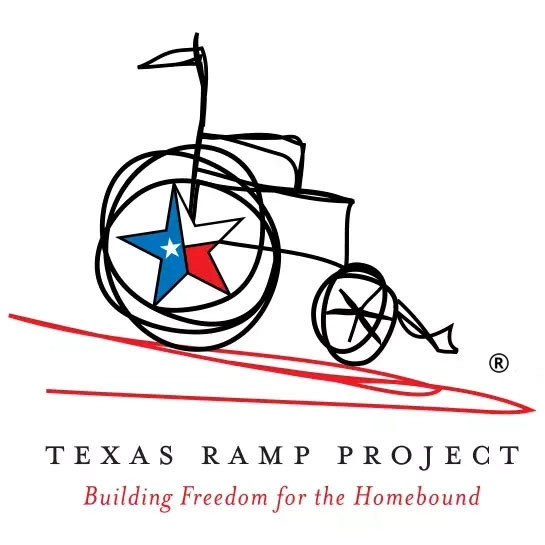Who We Are
The Texas Ramp Project is a 501(c)(3) nonprofit organization that provides wheelchair ramps to low-income older adults and people with disabilities identified by local healthcare providers. Ramps are built with volunteer labor, keeping costs to a minimum, and are built without regard to race, religion, ethnicity, age or gender.
CLICK HERE for the Texas Ramp Project Fact Sheet
Our Mission Statement
To provide wheelchair ramps to low-income older adults and people with disabilities
Our Vision Statement
“Our vision is that no Texas resident shall lack safe access because of financial limitations.”
History of the Texas Ramp Project
In 1985, members of the Kiwanis Club of Richardson, Texas, were asked to build a wheelchair ramp for a friend. That initial effort, and the next, and the next, resulted in the Dallas Ramp Project and development of a system for providing wheelchair ramps to low-income people with disabilities in Dallas County, at no cost to the recipient.
Twenty years later, the Dallas Ramp Project had built over 1,200 ramps, and it became obvious that the entire state could benefit from this volunteer ramp-building model. Thus, a new statewide nonprofit called the Texas Ramp Project was incorporated in June 2006. Its mission: to establish regional organizations across the state to build ramps for older adults and people with disabilities in financial need. Founder and executive director was John Laine, who had served as volunteer director of the Dallas Ramp Project.
Since 2006 the Texas Ramp Project has expanded into 47 Texas regions, from Texarkana to El Paso and Amarillo to McAllen. Since inception Texas Ramp Project volunteers have built nearly 32,000 ramps. These ramps, if laid end-to-end, would extend 165 miles. To accomplish this, the Texas Ramp Project partnered with local churches, civic organizations, businesses, military servicemen and women, students, youth groups and many others, along with foundations and corporations, all across the state.
What’s most unique about the Texas Ramp Project is its use of all-volunteer labor. That means that TRP can hold the cost of a ramp to about a third that of a retail contractor. For less than $1,000 in materials and a few hours of donated labor on a Saturday morning, the life of a homebound person can be completely transformed.
TRP ramps provide safety, independence and improved quality of life to clients and relief to their families and caregivers. They often allow clients to age in place at home, surrounded by those who love and care for them. The ramps are built following ADA guidelines and are safe, strong and durable. They are built without regard to race, religion, age, gender or ethnicity. They are always free to clients.
01/09/2026
